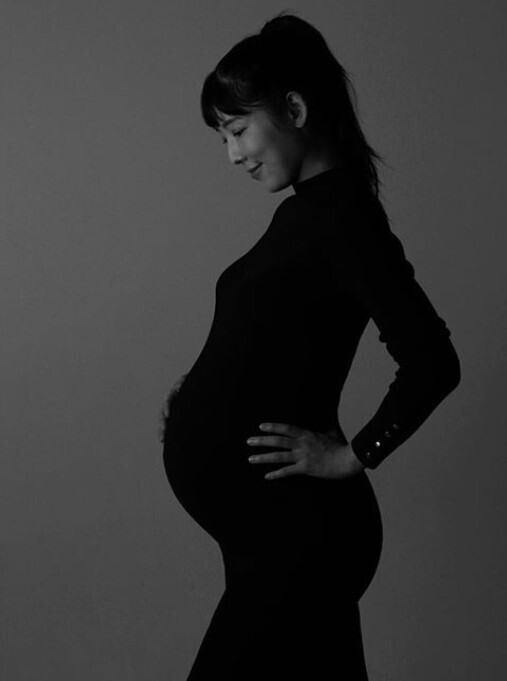hankyoreh
Links to other country sites 다른 나라 사이트 링크
Young Korean women inspired by Sayuri’s artificial pregnancy

“It was exciting to see this happen to a familiar celebrity. It got me thinking that maybe I could actually have a child without getting married,” said Kim Shi-eun, a 24-year-old officer worker who dreams of becoming a mother but isn’t so keen about getting married. Kim had just learned that 41-year-old television personality Sayuri (full name Sayuri Fujita), who is unmarried, had given birth to a child.
Kim grew fond of children while doing part-time work at a “kids’ café,” a type of indoor playground. “I still feel that patriarchal attitudes persist among people in their 20s and 30s, which is why I don’t intend to get married. My ex-boyfriends tried to control my behavior,” she explains.
Since Sayuri announced on Nov. 16 that she’d become a single mother through sperm donated in Japan, there have been calls for South Korean society to treat single parenthood as a valid option. As of Nov. 18, more than 3,400 comments expressing congratulations and support had been posted to the birth announcement on Sayuri’s Instagram account. “I support your difficult decision,” one person wrote.
One reason that Korean women who want to have children are hesitant about doing so outside of marriage is because they continue to face inequality in the country’s marital and family institutions.
“Seeing my parents’ relationship, I felt that marriage automatically sucks women into the hierarchy. I think about having kids and starting a family, but I didn’t want to handle an unfair amount of the childcare and housework after getting married,” said a 27-year-old surnamed Hong, who is currently looking for a job.
“Just as the right to abortion should be respected, I think that women’s freedom to have a child should be respected as well,” Hong added.
“I see my married friends dealing with a lot of nonsense such as housework and [food preparation during] the holidays. It’s basically a structure in which women are sacrificed,” said a 30-year-old office worker surnamed Jeong. “I don’t want to get married if it means putting up with all of that.”
According to a survey of 1,000 unmarried people in their 30s carried out by the Korea Population, Health and Welfare Association this past June, more women (30%) had a negative view of marriage than men (18.8%).
When asked why they held that negative view, 25.3% of women said they felt happy living alone, while 24.7% cited cultural issues such as the hierarchy and sexual inequality.
South Korean law doesn’t currently forbid unmarried women from undergoing in vitro fertilization using donated sperm. But it remains a difficult choice in a system that is predicated on “normal” families and in a society that stigmatizes having children outside of wedlock.
“I don’t feel confident enough to fight the social assumption that it’s abnormal for unmarried women to have children. In fact, I’ve never even told my parents [about my feelings]. Just look at how the government gives newlyweds low interest rates on ‘key money’ housing loans — all government policy is focused on normal families,” Jeong said.
“I looked into adoption and in vitro fertilization because I wanted to raise a child on my own, but none of that is possible,” said Kim, 43, an unmarried office worker.
Experts say that South Korean society needs to recognize women’s right to make their own choices about pregnancy and childbirth and to accept various types of families.
“We need to recognize women’s right to choose in regard to pregnancy, regardless of whether or not the man has consented or is even present. It’s important to move beyond a male-centered and heteronormative understanding of the family and to institutionalize the right to have diverse types of families,” said Yun-Kim Ji-yeong, a professor at the Institute of Body and Culture at Konkuk University.
By Kim Yoon-ju, staff reporter
Please direct comments or questions to [english@hani.co.kr]

Editorial・opinion
![[Column] Park Geun-hye déjà vu in Yoon Suk-yeol [Column] Park Geun-hye déjà vu in Yoon Suk-yeol](https://flexible.img.hani.co.kr/flexible/normal/500/300/imgdb/original/2024/0424/651713945113788.jpg) [Column] Park Geun-hye déjà vu in Yoon Suk-yeol
[Column] Park Geun-hye déjà vu in Yoon Suk-yeol![[Editorial] New weight of N. Korea’s nuclear threats makes dialogue all the more urgent [Editorial] New weight of N. Korea’s nuclear threats makes dialogue all the more urgent](https://flexible.img.hani.co.kr/flexible/normal/500/300/imgdb/original/2024/0424/7317139454662664.jpg) [Editorial] New weight of N. Korea’s nuclear threats makes dialogue all the more urgent
[Editorial] New weight of N. Korea’s nuclear threats makes dialogue all the more urgent- [Guest essay] The real reason Korea’s new right wants to dub Rhee a founding father
- [Column] ‘Choson’: Is it time we start referring to N. Korea in its own terms?
- [Editorial] Japan’s rewriting of history with Korea has gone too far
- [Column] The president’s questionable capacity for dialogue
- [Column] Are chaebol firms just pizza pies for families to divvy up as they please?
- [Column] Has Korea, too, crossed the Rubicon on China?
- [Correspondent’s column] In Japan’s alliance with US, echoes of its past alliances with UK
- [Editorial] Does Yoon think the Korean public is wrong?
Most viewed articles
- 1‘We must say no’: Seoul defense chief on Korean, USFK involvement in hypothetical Taiwan crisis
- 2Will NewJeans end up collateral damage in internal feud at K-pop juggernaut Hybe?
- 3[Column] Park Geun-hye déjà vu in Yoon Suk-yeol
- 4Why Korea shouldn’t welcome Japan’s newly beefed up defense cooperation with US
- 5Thursday to mark start of resignations by senior doctors amid standoff with government
- 6N. Korean hackers breached 10 defense contractors in South for months, police say
- 7[Guest essay] The real reason Korea’s new right wants to dub Rhee a founding father
- 8[Column] ‘Choson’: Is it time we start referring to N. Korea in its own terms?
- 9Kim Jong-un expressed ‘satisfaction’ with nuclear counterstrike drill directed at South
- 10[Editorial] New weight of N. Korea’s nuclear threats makes dialogue all the more urgent